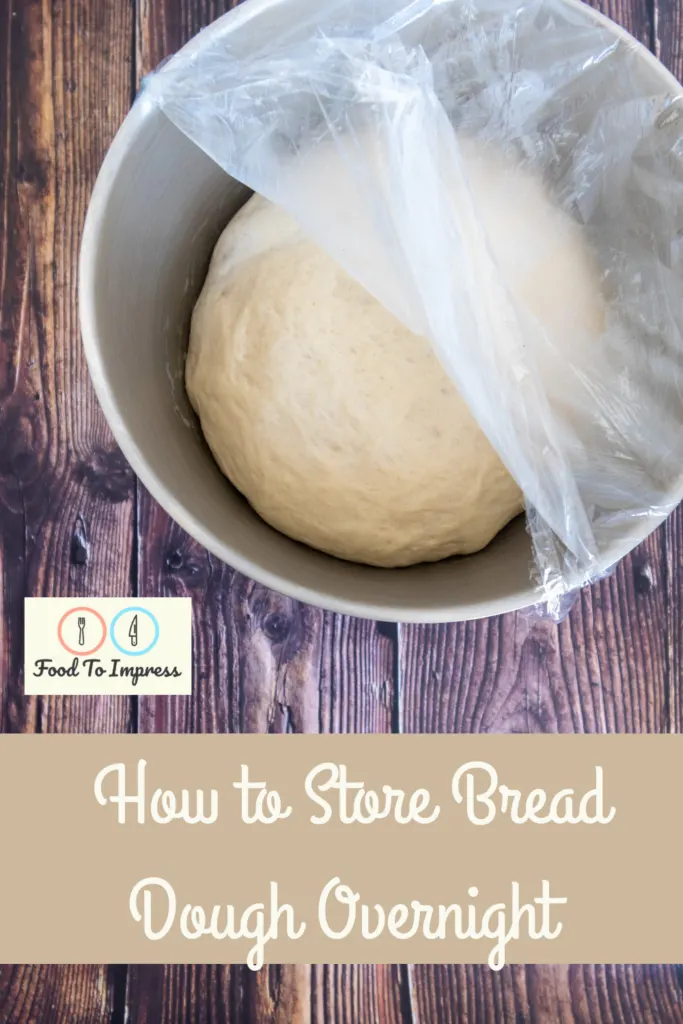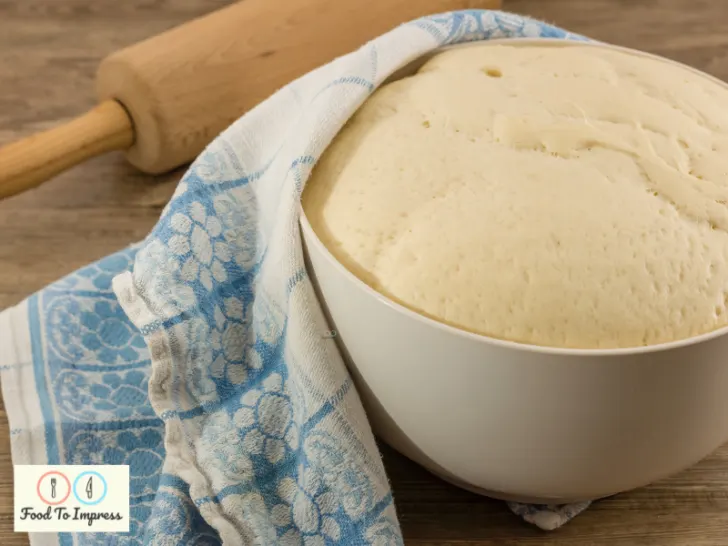A fresh loaf of bread, warm from the oven, can be the perfect accompaniment to a delicious meal. It is not always practical to make bread from scratch and bake it in the same day. Fortunately, there are ways to store bread dough overnight, allowing you to enjoy a fresh loaf of bread the next day without compromising on taste or texture. Read more about the details on how to store bread overnight.
How to Store Bread Dough Overnight
To store bread dough overnight, first, complete the initial rise and shape the dough, then place it in a greased bowl or an airtight container. Cover the container with plastic wrap to prevent drying, and place it in the refrigerator to slow down yeast activity and allow for a longer, slower rise. This method enhances the flavor and texture of the bread, enabling you to bake a fresh loaf the following day.
Read on to learn more about the best way to store bread dough overnight.
How Do You Refrigerate Bread Dough Overnight?
Storing bread dough in the refrigerator is a great way to slow down the activity of the yeast, allowing for a slower rise and better flavor development. To refrigerate bread dough overnight, follow these steps:
- After the first rise, punch down the dough to remove any air bubbles.
- Shape the dough into your desired shape, and place it in a greased bowl or an airtight container.
- Cover the container with plastic wrap to prevent the dough from drying out.
- Place the container in the refrigerator for the overnight rise.
The cold temperatures will slow down the yeast activity, resulting in a longer fermentation process and tastier results.

Can I Make Bread Dough the Night Before?
The short answer is yes, making bread dough the night before is a good idea for those looking to save time or achieve a better flavor profile in their bread. By allowing the dough to rise overnight in the refrigerator, you are giving the yeast extra time to work on the flavor of the bread, resulting in a tastier final product. Read more about leaving bread dough overnight after it has risen.
How to Store Bread Dough in the Freezer
Freezing bread dough is another great way to store it for a longer period. This method is perfect for those looking to prepare pizza crust or other types of dough in advance. To store bread dough in the freezer:
- Complete the first rise and punch down the dough.
- Shape the dough into a ball or your desired shape.
- Wrap the dough tightly in plastic wrap or place it in a sealed plastic bag to protect it from freezer burn.
- Place the dough in the freezer for up to three months.
When you are ready to use the frozen dough, remove it from the freezer and let it thaw in the refrigerator or on the kitchen counter. Once the dough has thawed and reached room temperature, proceed with the second rise and baking process.
Can You Refrigerate Dough After It Rises?
Refrigerating dough after it has risen is a common practice among professional bakers who want to achieve the best possible results. This method allows for a second, slower rise that further develops the flavor of the bread. To refrigerate risen dough:
- Place the risen dough in a large bowl and cover it with plastic wrap or place it in an airtight container.
- Place the container in the refrigerator for several hours or overnight.
- The next day, remove the dough from the refrigerator and allow it to warm up and continue rising before baking.
How Long Can You Keep Bread Dough in the Fridge?
You can store bread dough in the refrigerator for up to 5 days. However, some types of dough, such as sourdough bread or dough with less yeast, can be stored for a longer time in the fridge without any adverse effects on the final product.
Additional Tips on How To Store Bread Dough Overnight
Here are some additional tips to ensure the best results when storing bread dough overnight:
- Adjust the amount of yeast in your bread recipe: Using less yeast can help slow down the rising process, allowing for a longer, slower rise in the refrigerator. This is particularly useful for sourdough bread and dough with a longer fermentation time.
- Monitor the temperature of your kitchen: Warmer temperatures can speed up the yeast activity, while colder temperatures will slow it down. Aim for a cool place in your kitchen when storing dough overnight to ensure a slower rise and better flavor development. Read more about the best temperature for rising bread dough.
- Pay attention to visual cues: When you’re ready to bake your dough the next day, look for signs that the dough has risen enough. These signs may include the dough doubling in size or becoming puffy and light to the touch.
- Extend the baking time if necessary: Cold dough may require a slightly longer baking time compared to dough that has been proofed at room temperature. Keep an eye on your bread as it bakes, and be prepared to add a few extra minutes to the baking time if needed.
By following these tips and the methods discussed in this article, you can achieve a perfect loaf of bread even when storing your dough overnight. This technique is not only convenient but can also lead to better flavor and texture in your final product. So, the next time you find yourself wanting fresh bread but short on time, consider storing your dough overnight for a delicious and satisfying result.
Conclusion
In conclusion, storing bread dough overnight is an excellent way to save time and achieve a better flavor in your final loaf. By following the steps outlined in this article, you can prepare your dough the night before and still enjoy a fresh loaf of bread the next day. Remember to use an airtight container or plastic wrap to protect your dough from drying out, and allow extra time for the dough to warm up and rise before baking.

